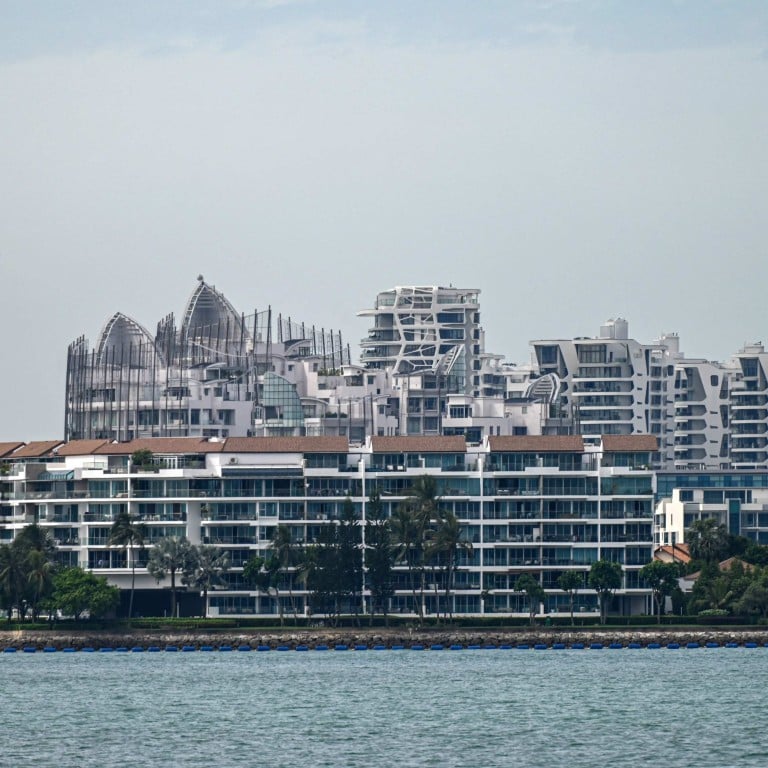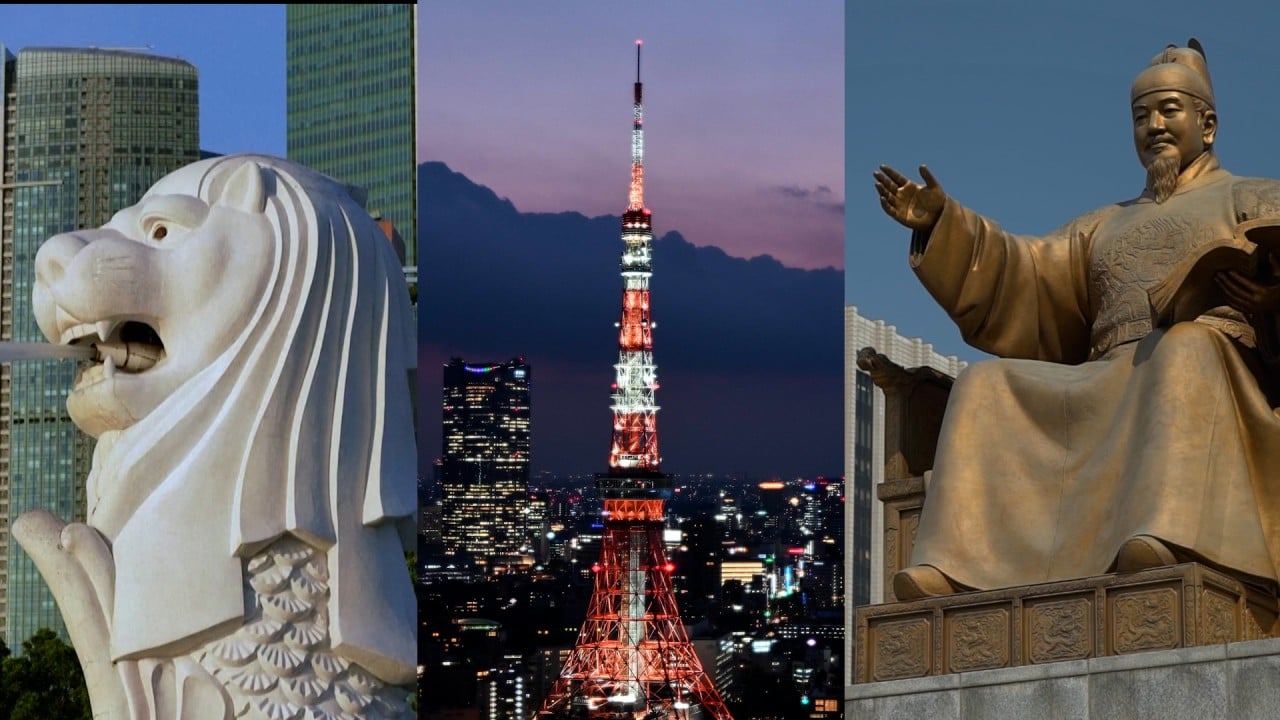
Singapore’s uber-rich foreigners shun extravagance, spooked by wealth scrutiny
- From Sentosa Cove properties to whiskies, rich foreigners are holding back on spending following a major money-laundering case and tax hikes
The dramatic fall in value of the high-rise condominiums is emblematic of a broader retreat among Singapore’s ultra-rich foreigners, who are ostensibly pulling back on extravagant spending amid heightened scrutiny of their wealth and property tax hikes.
This marks a stark contrast from 2021, when S$4.5 million (US$3.39 million) Sentosa Cove units were snatched up almost instantly, according to Angelyn Tan, a property agent specialising in luxury condominiums and homes.
“I introduced a high net worth elderly couple to Sentosa Cove [in 2021]. They did not know Sentosa had houses and were wowed by the spectacular view and purchased a unit right away,” she said.
Foreigners comprised a substantial proportion of homeowners in the exclusive tourist island of Sentosa, said Tan, who cited statistics from independent property research firm Square Foot Research indicating that foreigners owned around 22 per cent and 18 per cent of condominium units and landed homes in Sentosa, respectively.
Meanwhile, permanent residents owned around 27 per cent and 24 per cent of condominiums and landed homes in the enclave, respectively.
Sentosa Cove is the only enclave where foreigners can buy landed property in the land-scarce island state, which spans only an area of 730 sq km.

Observers say those with deep pockets in Singapore are now adopting a “wait-and-see approach”, with some turned off by enhanced surveillance on wealth in the aftermath of a S$3 billion money-laundering case last August.
The saga exposed a vast network of illicit funds flowing through local banks and real estate in the city state, which has spent decades building its reputation as the “Switzerland of the East”.
The case also spurred a regulatory overhaul to enhance Singapore’s anti-money-laundering regime, with family offices and hedge funds required to provide more information and lay out additional requirements.
The central bank said it would repeal a licensing regime used by hedge funds with assets up to S$250 million, moving them to a stricter reporting regime instead.
“Many [prospective buyers] are taking the wait-and-see approach as they feel that they may have the opportunity to grab one of those properties at a good price,” said Tan, noting that she saw a huge drop in the number of inquiries for luxury properties in recent months.
This is the reality that luxury property agents, car dealerships and golf membership brokerages have been grappling with of late, a dramatic shift since the post-pandemic days when Singapore saw an inflow of funds from China’s rich, who were seeking refuge from Beijing’s strict Covid-related restrictions and clampdowns in the private sector.
Since then, demand for high-end homes, cars and golf memberships has fallen due to a confluence of reasons, such as tax hikes and sluggish economic growth in China, industry observers say.

Sales of luxury homes originally worth at least S$5 million dropped by half year-on-year in the first quarter ending March, with the number of foreigners purchasing these properties dropping by 98 per cent, according to local media reports.
Last year, foreign buyers accounted for most of such deals over the same period, buying 52 units just weeks before the government introduced a fresh round of cooling measures.
Due to restrictions on real estate and higher additional buyer’s stamp duties for foreigners, many had set their sights on commercial properties and shophouses instead, said Henry Lim, head of good-class bungalows and prestige landed at property firm Propnex.
These policy moves arose partly because Singapore can “pick and choose” the kind of wealthy foreigners they allow in, according to an economist.
“Singapore is a small little island state, so you’d want to ensure socio-economic balance in all these kinds of things. It cannot just be a playground for the ultra-rich types because there will be implications for other segments of society,” said Song Seng Wun, an economic adviser at the financial services firm CGS.
The regional financial hub continued to welcome high-flying businessmen and established family offices, he added, pointing out that the tax hikes were also aimed at rich Singaporeans.
“The carpet is still out there, Singapore hasn’t changed, but it is a lot more selective.”
With the cutback in spending, more consumers are also choosing to be discreet instead of flaunting their wealth.
Earlier this year, a private club, Circle 33, known for its illustrious list of wealthy Chinese clientele, closed after it failed to renew its lease, according to a report by the Financial Times.
Sources were quoted as saying that members stopped going to the establishment, famed for its extensive wine menu that ran into six figures, after it gained a reputation for attracting high-flying business executives from China and the region.
Meanwhile, then deputy prime minister Lawrence Wong also raised additional registration fees for luxury cars that that have an open market value of more than S$80,000, from 220 per cent to 320 per cent.
Say Kwee Neng, managing partner of automotive consultancy One Strategic Consulting, said demand for super luxury cars had been “anecdotally blamed on the drying up of Chinese consumer demand for these vehicles”, which in turn was caused by more vigorous background checks on customers.
“With the advent of new regulations flowing from the money-laundering case, frontline sales staff are now requesting more information and validation if someone makes a big-ticket purchase,” he said.
“With these more stringent checks, they’d rather not go through the hassle just to drive their dream car, which is a real dampener when selling dream machines,” he added, pointing out that there had been a “perceptible drop off in walk-in traffic” in showrooms and more customers declining invitations for test drives of these cars recently.
Other big-ticket purchases such as rare whiskies and golf memberships have also seen demand drop since 2021, when wealthy foreigners were not afraid to splurge.
Back in its heyday, the price of an exclusive Sentosa Golf Club membership peaked at around S$950,000 for foreigners last year. Since then, prices have dropped to about S$750,000 and many are still delaying signing up, according to Lee Lee Langdale, founder of club membership brokerage Singolf.
At the time, Langdale said she would be approached by Chinese nationals who would offer to pay membership fees entirely in cash, but she would turn these customers away.
Now that the dust of the money-laundering case is settling, most customers who were involved in illicit activities may have vanished and “serious” golfers are waiting to see if membership prices could fall further.
Ultimately, it is life as usual for most of the upper class whose wealth came from legitimate sources, according to Say from One Strategic Consulting.
“I think the money-laundering case has taken the froth away from the market. These are the guys whose money comes from dubious sources, they are now keeping a low profile. But those with legitimate sources of income won’t change their consumption patterns significantly,” he said.
“Singapore is their chosen home and this is where they can let down their hair, and spend their hard-earned cash.”


